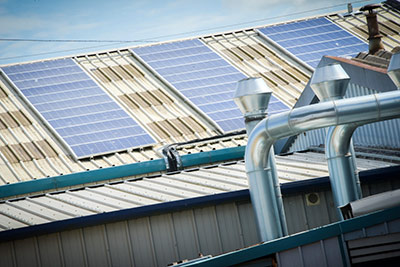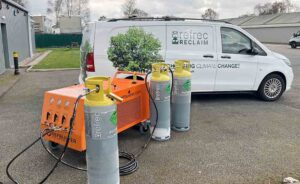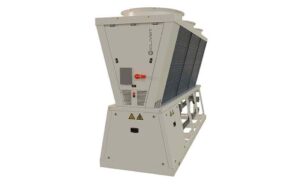Williams expects solar savings
2nd September 2015 UK: Williams Refrigeration is expecting to save 496,000kWh of electricity per year following the installation of a large array of solar panels on its factory roof.
UK: Williams Refrigeration is expecting to save 496,000kWh of electricity per year following the installation of a large array of solar panels on its factory roof.
Earlier this year, the commercial refrigeration manufacturer installed 2,298 photovoltaic solar panels on two of the factory roofs at its King’s Lynn plant.
The solar panels are expected to generate 496,000kWh of electricity per year, reducing the company’s annual CO2 emissions by 297 tonnes while cutting energy costs dramatically.
“Williams has a strong environmental focus,” says Tim Smith, the company’s managing director. “The PV installation is part of the Energy Savings Opportunity Scheme (ESOS) and the latest project under our Greenlogic initiative – which commits us to developing eco-friendly refrigeration, whilst minimising the impact of our manufacturing on the environment,” he added.
“Increasingly our customers are focussed on their own environmental commitments. Many of the larger groups look to us, as their supplier, to support these objectives. At Williams we are all very proud of our ‘green’ record, which this installation enhances enormously.”
Williams worked closely with the installer, Styles & Wood, to ensure the safety of the workforce whilst avoiding any interruptions to Williams’ day-to-day activities. In fact, throughout the 12 week installation, between December 2014 and February 2015, it was business as usual.
“New incentives and funding options are allowing more progressive companies to take up the option of solar PV, which in the past would have been too difficult and costly,” says Smith. “They can make an important contribution to the UK’s carbon reduction objectives.”
Williams Refrigeration offers a comprehensive range of commercial refrigeration products for the foodservice, bakery and retail markets. Under its Greenlogic programme the company has developed a variety of energy-saving technologies and continues to look to ways to reduce its impact on the environment – another recent milestone was achieving ‘zero to landfill.’







